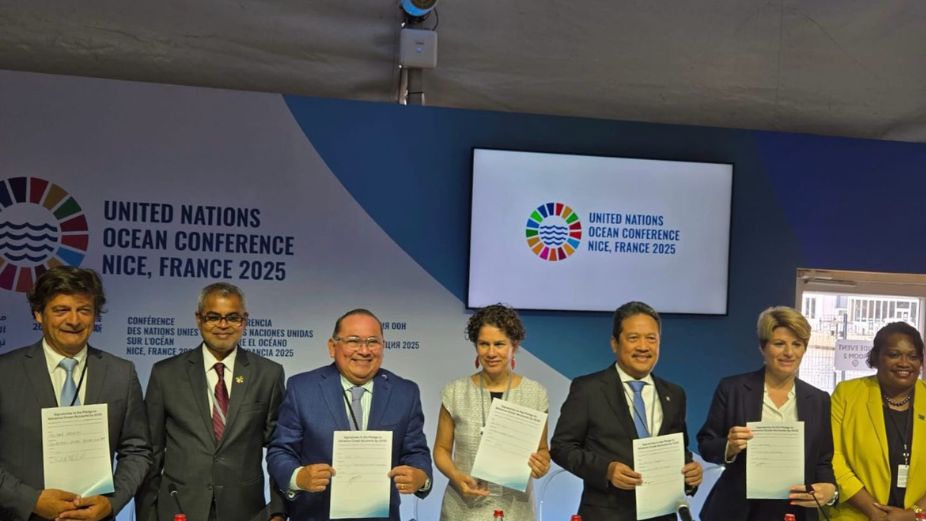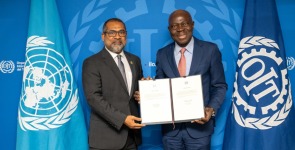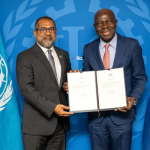
The Minister of Tourism and Environment, Thoriq Ibrahim, officially launched the National Implementation Roadmap for Ocean Accounts 2025–2030 at the United Nations Oceans Conference (UNOC3), reinforcing the Maldives’ commitment to sustainable ocean development.
Speaking at the high-level side event “Delivering on the 2030 Sustainable Ocean Economy”, co-hosted by the Maldives, Minister Thoriq emphasised the Roadmap’s alignment with the global Pledge to Advance Ocean Accounts by 2030. He called on development partners and donors to continue—and increase—their support for the implementation of Ocean Accounts, which he described as vital for achieving the country’s long-term development goals.
Titled “Accounting for Nature to Safeguard the Maldives’ Development,” the Roadmap sets out the government’s strategy to achieve developed nation status by 2040 through the sustainable use of its vast marine and coastal biodiversity. To advance this ambition, the government will employ Ocean Accounts (OA)—an innovative framework that integrates environmental and economic data to evaluate the condition of marine assets, their economic value, and the impact of human activity. These accounts play a crucial role in driving evidence-based policymaking and attracting sustainable investment.
Structured into five core modules—environmental assets, flows to and from the economy, ocean economy, and governance—the OA system directly supports national priorities such as biodiversity conservation, climate resilience, marine spatial planning, sustainable tourism, and environmental finance. The Roadmap builds upon robust legislative foundations, including the Environmental Protection Act, Fisheries Act, and Climate Emergency Act, and is aligned with strategic development documents such as the Fifth Tourism Master Plan and the National Biodiversity Strategy.
The implementation is phased over three key milestones: by 2026, foundational systems and indicators will be in place; by 2028, the OA system will be scaled nationwide; and by 2030, it will be fully integrated into national development and planning frameworks. The approach is operationalised through four workstreams—data compilation, policy mainstreaming, stakeholder cooperation, and international engagement—ensuring a whole-of-government and whole-of-society implementation model.
With this launch, the Maldives reinforces its global leadership in ocean-based development and reaffirms its commitment to balancing economic prosperity with environmental sustainability, demonstrating that natural capital is not only a resource to protect but also a strategic asset to grow.











